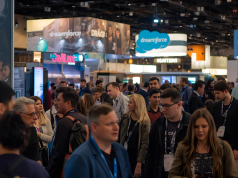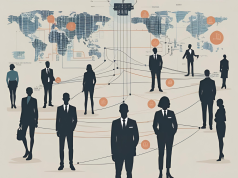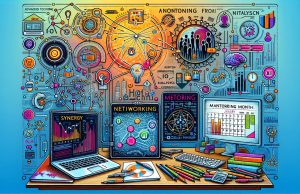In an era where the only constant is change, the corporate world is undergoing a seismic shift that goes far beyond open-plan offices and casual Fridays. As ‘The Work Times’ peels back the layers of corporate jargon and glossy PR campaigns, we find ourselves in the midst of an identity crisis in modern employment. What does workplace branding truly mean today, and how are organizations transforming to meet the evolving expectations of their workforce?
From the traditional bastions of industry to the sleek tech giants of Silicon Valley, the concept of a workplace brand is evolving. No longer is it sufficient to promise a stable job and a regular paycheck. Today’s workers seek purpose, fluidity, and alignment with their personal values. They channel their identities into their work, and in return, they expect their work to reflect, support, and enhance those identities.
The paradigm shift is evident. Remote work, once a perk, has become a mainstay. The global pandemic acted as a catalyst for a trend that was already on the rise, shaking the very foundations of the ‘office’ concept. Organizations are now not only physical spaces but also digital realms, where the lines between work and life blur. This shift demands a reevaluation of how companies present themselves. The spotlight is on flexibility, autonomy, and trust. Are you an organization that ties workers to their desks, or one that empowers them to define their own working space and time?
Diversity and inclusion have also moved from the margins to the center of corporate branding. It is not enough to have a policy; companies are expected to actively cultivate a culture that embraces and celebrates differences. Employees and potential hires look for genuine representation and equitable advancement opportunities. They scrutinize the makeup of leadership teams, the transparency of pay scales, and the authenticity of social responsibility initiatives.
Another compelling force reshaping workplace branding is employee activism. Armed with the power of social media and a heightened sense of corporate accountability, today’s workforce is not shy about holding their employers to account. From ethical concerns to environmental policies, employees demand—and often drive—change. They advocate for their companies to take stands on social issues, to be more than profit-generating machines.
But are companies truly embracing these shifts, or are they merely applying a fresh coat of paint on the same old structures? It’s one thing to craft a brand message that hits all the right notes; it’s quite another to embed those values into the DNA of your operations. As we engage with thought leaders and human resource innovators, we uncover the truth behind the branding.
Through in-depth interviews and incisive analysis, we aim to reveal whether workplace branding is experiencing a genuine transformation or if traditional work models are simply being repackaged to appease a new generation. We’ll examine case studies of organizations that are leading the charge and scrutinize the potential pitfalls of those who fail to adapt.
The narrative is unfolding, and ‘The Work Times’ is here to tell the story. We will explore the intricate dance between evolving employee expectations and the corporate response, highlighting the changemakers and probing the hesitation of old guard. The future of employment awaits, and it is ripe with both opportunity and challenges. As we navigate this landscape, we invite you to join us in a critical examination of the revolution in workplace branding. After all, the identity we cultivate at work is more than a tagline; it’s the legacy we leave for the next generation of the workforce.


























